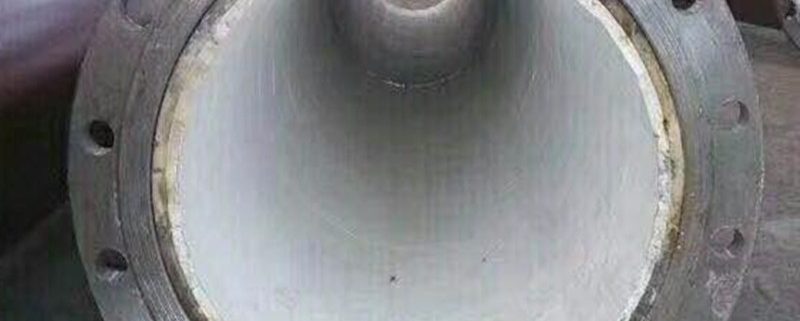Ceramic patch wear-resistant tube for power plant
There are two production processes for ceramic patch wear-resistant pipes for power plants: pasting process and inlay process
Ceramic chip type and thickness in ceramic chip wear-resistant tube:
Mutual pressure 60*40, 50*40, 30*25
Mosaic 10*10*10, 10*10*5, 17.7*17.5*5, 17.5*17.5*10
Purity: 92, 95, 97, 99
There are two types of ceramic adhesives for the inner wall of wear-resistant pipes for power plants: inorganic adhesives and organic adhesives. The difference is that inorganic adhesives can withstand temperatures within 500°C, while organic adhesives can withstand temperatures between 120°C and 380°C.
Performance introduction of ceramic patch wear-resistant pipe for power plant:
- Wear resistance: The Al2O3 content in the inner ceramic layer of the ceramic composite steel pipe is greater than 90%, the microhardness is HV1000-1600, and the density is 3.8-3.97g/cm3, so it has extremely high wear resistance. The quenched medium carbon steel is ten times higher than the tungsten carbide carbide.
- Corrosion resistance: ceramics are neutral materials with stable chemical properties, excellent corrosion resistance and acid resistance, resistance to various inorganic acids, organic acids, organic solvents, etc., and its corrosion resistance is more than ten times that of stainless steel .
- Heat resistance: The ceramic layer is dense corundum with a linear expansion coefficient of 6-8×10-6/℃. Excellent heat resistance, can withstand temperatures above 2000℃, and can work for a long time in the range of -50℃~900℃.
- Mechanical properties: It has excellent mechanical properties. Its crush strength is 300-600MPa, compressive shear strength is 20-30MPa, and the mechanical impact test has no obvious cracks under 50t energy impact for 15 times.
- Easy to weld: The ceramic-lined composite steel pipe can be connected by welding the outer steel pipe.
- The connection method of the product: Welding connection and flange connection of the transition section. If there is no transition section, the welding will be affected. If there is no transition section, the welding residual heat will affect the bonding of the ceramic patch while welding, which will melt the adhesive and make the bonded ceramic patch fall off, thereby reducing the adhesion. Therefore, the quality should be set aside for the transition period.
What are the contraindications of this product?
Inorganic glue can’t take water, organic glue has a higher temperature resistance than inorganic glue
Which industries does this product apply to?
Power plant pulverized coal, ash slag, mine powder, tailings, backfill, coal from coal mines, concentrators, coke particles from coking plants, and materials from sintering plants.
Decho is a professional supplier on Ceramic patch wear-resistant tube. If you need any for your project , pls feel free to contact us by email [email protected]




